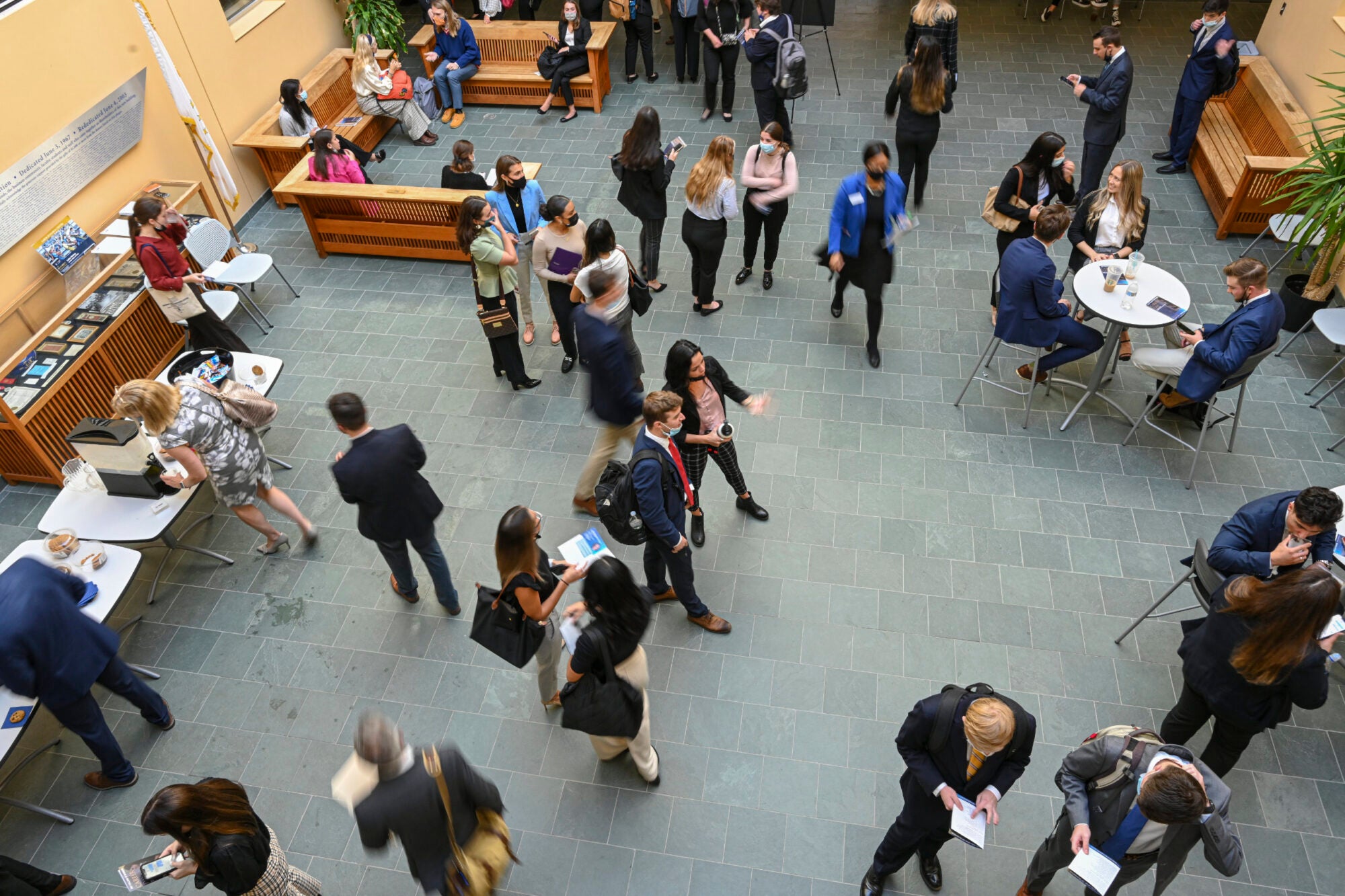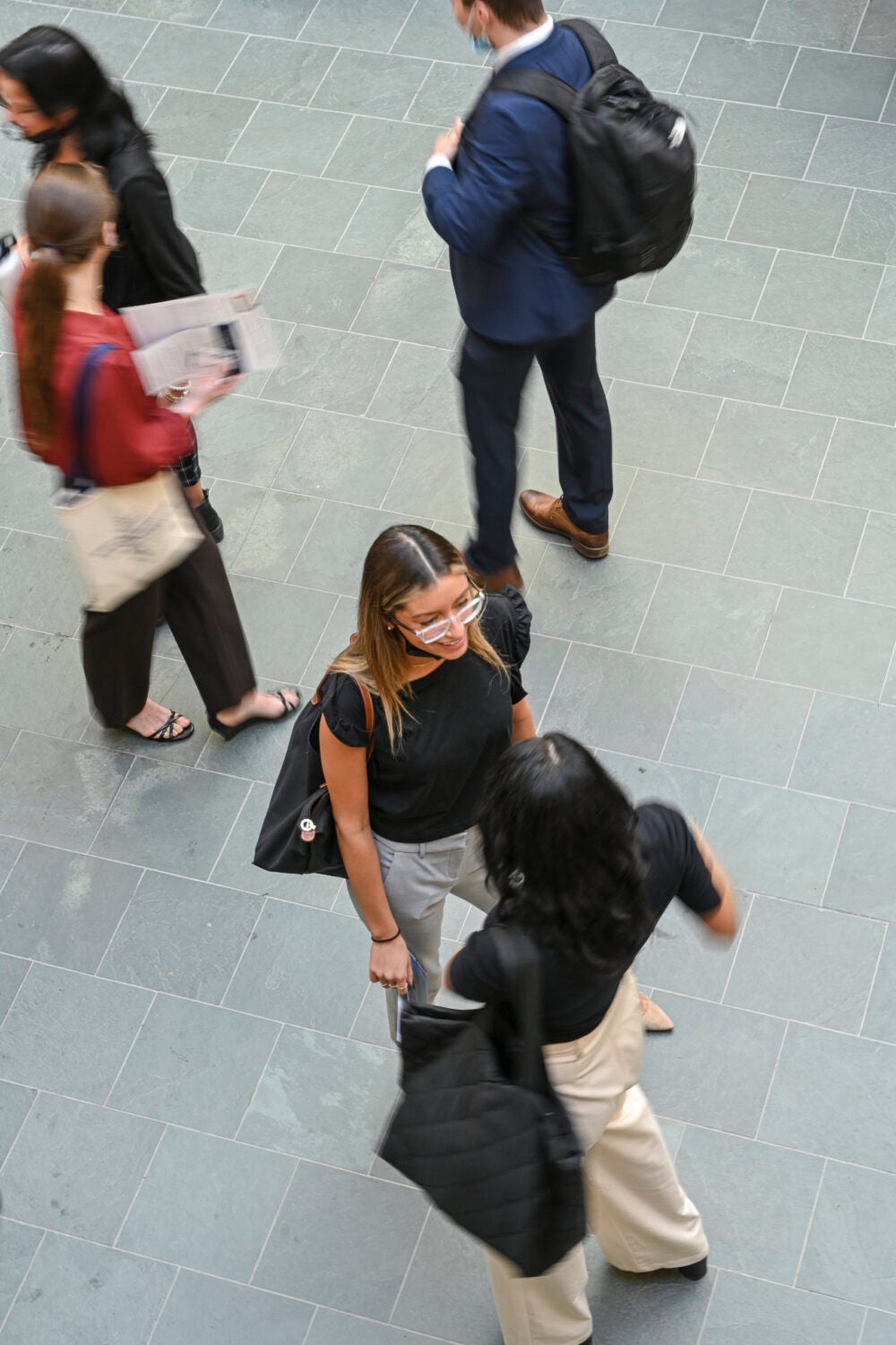Economic Impact of the University of Rhode Island
As a global education leader and the state of Rhode Island’s flagship public research institution, the University of Rhode Island offers its undergraduate, graduate, and professional students unique educational opportunities designed to meet the global challenges of today’s world and the rapidly evolving needs of tomorrow. Its educational, research, outreach, and economic development programs contribute significantly to the health and vitality of our state.
This summary highlights key findings from an economic impact assessment of fiscal year 2019 data completed by Appleseed, Inc. to understand the University’s impact on the state of Rhode Island. It also incorporates data from a statewide impact assessment conducted by the University’s Division of Research and Economic Development.
Davis Hall and surrounding buildings on the University of Rhode Island’s Kingston Campus.
Overview
In fiscal year 2019, the University’s impact on Rhode Island’s economy was considerable. Through the multiplier effect, for every dollar contributed by the state, the University generated $6.25 in statewide economic output.
URI, directly and indirectly, generated $824.6 million in statewide economic activity, supported 8,097 jobs, and provided $418.6 million in wages. This included spending nearly $167.7 million on the purchase of goods and services and $150.6 million on the construction and renovation of campus facilities, of which approximately $71.1 million (42.4%) and $133 million (88.3%) was provided to Rhode Island businesses, respectively. URI is also one of the largest employers in the state, employing a total of 3,818 people, an increase of 4.6% (168 jobs) since the fall of 2011.
The Fascitelli Center for Advanced Engineering, which opened in 2019, is one of the newest buildings on campus and was the largest construction project in University history.
The University was also a significant generator of revenues from outside the state. URI’s revenues totaled nearly $545.3 million, with approximately 51% derived from sources outside of Rhode Island. Student tuition and fees accounted for 53.5% of total revenues, of which out-of-state students accounted for about 60% of all tuition and fee income. State appropriations and state and local government grants and contracts accounted for approximately 17%.
Students experiment with wearable technology in one of the Fascitelli Center’s state-of-the-art labs.
Research and Technology
For every dollar of state appropriation, the University’s Division of Research returned $1.25, or 25%, in external awards and $3.50, or a 250% return, in economic impact to the state and its constituents.
During fiscal year 2021, URI spent $93.5 million on research. Approximately 87.8% of all URI research spending in fiscal year 2021 was funded by federal agencies, including:
- National Institute of Health/Department of Health and Human Services (22.9%)
- National Science Foundation (21.0%)
- Department of Commerce/National Oceanic and Atmospheric Administration (12.1%)
- Agency for International Development (12.1%)
- Department of Defense (7.0%)
- Department of Agriculture (6.7%)
From fiscal year 2012 through fiscal year 2021, 30 new businesses were created based on technologies first developed at URI.
The URI Marching Band performs at the 2019 Alumni and Family Weekend.
Alumni
There are more than 56,000 URI alumni (approximately 42% of all URI alumni whose residence is known) living in Rhode Island.
It’s estimated that approximately 22.2% of all Rhode Island residents with at least a bachelor’s degree are graduates of URI.
By making higher education more accessible and more affordable for state residents, URI has helped to increase the number of Rhode Island residents with at least a bachelor’s degree. It is estimated that in 2021, the skills and knowledge acquired by URI graduates added $4.56 billion to Rhode Island’s GDP, an increase of approximately 7%.


College of Business students attend a career event in 2021.
Outreach and Community Engagement
URI is a key driver of economic and workforce development in Rhode Island. The University maintains strong and robust partnerships with many local, national, and international companies in a variety of industries, including defense, manufacturing, agriculture, aquaculture, and renewable energy, including offshore wind. URI also provides research expertise and professional development opportunities to many corporate and community partners.
URI contributes to Rhode Island’s education and health care workforce through the work done by nursing, pharmacy, and education students during their training through clinical rotations, pharmaceutical internships, student teaching, and more. For example, during the 2018-19 academic year, URI nursing students performed 172,816 clinical hours in hospitals, community health agencies, nursing homes, clinics, and schools throughout Rhode Island.
URI students engage with Rhode Island communities through service-learning courses that connect academic coursework with issues and needs within the community. During the 2018-19 academic year, 873 URI students participated in 33 courses with a service-learning component.
